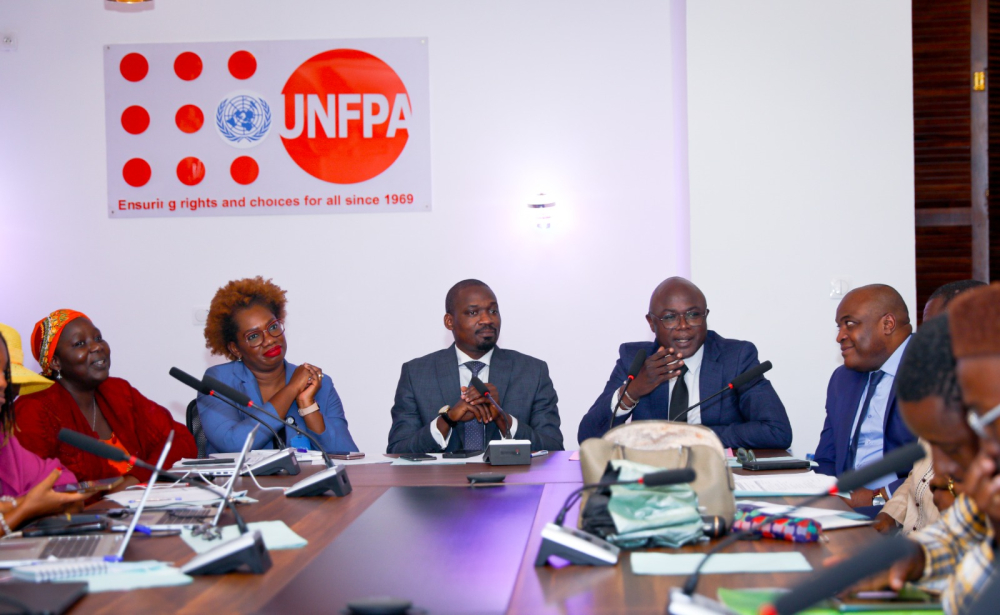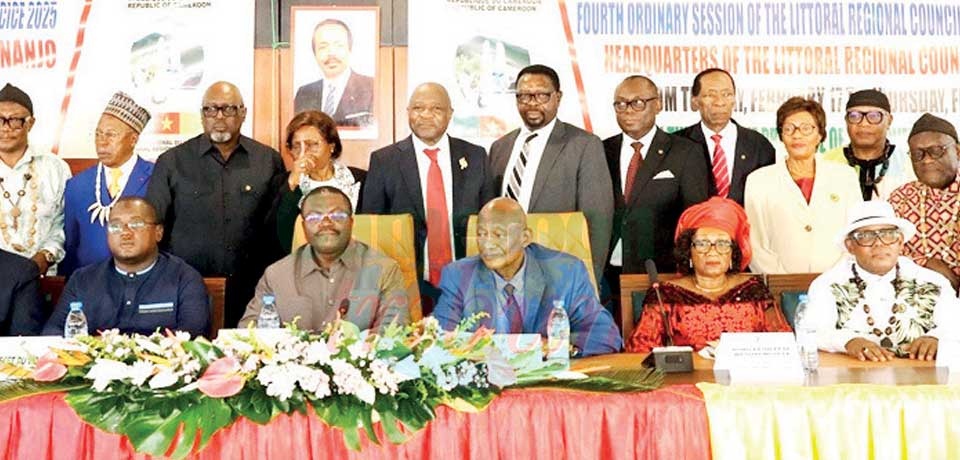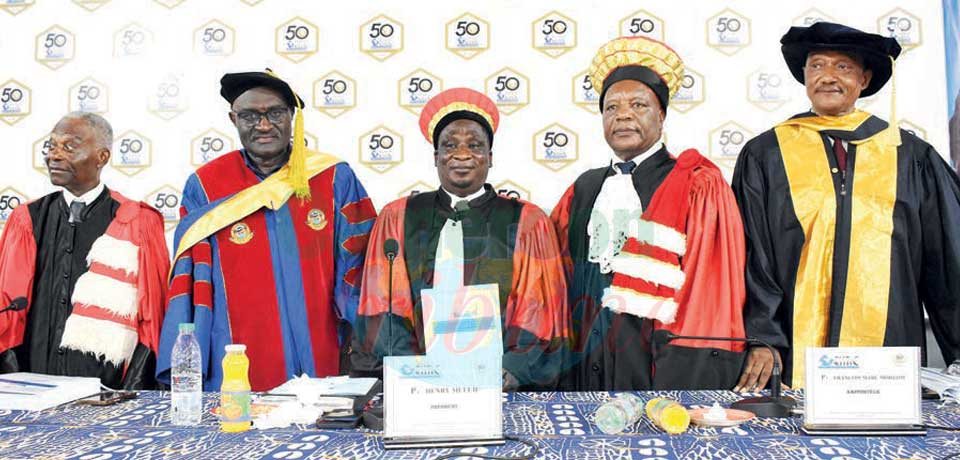Obstetric Fistulas : The Battle Cry Is Already Launched!
- Par Kimeng Hilton
- 05 Jun 2025 16:53
- 0 Likes

The United Nations Population Fund and the Ministry of Public Health on June 4, 2025 in Yaounde held a media debriefing to strengthen awareness, advocacy and mobilize resources to eliminate the disease in Cameroon by 2030.
The United Nations Population Fund, UNFPA and the Ministry of Public Health are leading the "Eliminate Fistula Campaign" in Cameroon by 2030. According to the 2018 Cameroon Demographic and Health Survey, 17,221 women and girls are living with untreated obstetric fistula in the country. It is for this reason that the United Nations Population Fund and the Ministry of Public Health on June 4, 2025 in Yaounde organized a media debriefing to strengthen awareness, advocacy and mobilize resources to eliminate the disease in Cameroon in five years’ time.
18,000 Fistula Cases
“The current estimated number of obstetric fistula cases in Cameroon is 18,000. With an incidence of more than 2,000, we believe the time is now or never! We already have a clear and bold vision to eliminate obstetric fistulas in Cameroon by 2030 in line with United Nations Sustainable Development Goal Number 3. It is important that we work together with other partners, sensitise adequately and mobilise resources to handle fistula cases; and also ensure that existing fistula services are not allowed to die,” warned Aimar Some, Bureau Head for UNFPA Cameroon.
More Efforts Required
“Last year we repaired hundreds of cases of women suffering from obstetric fistula. But this is not enough. We need to strengthen and improve our efforts in mobilising more partners and resources to fight fistulas in Cameroon,” Some added.
Training, Training
“Because obstetric fistula is the most disabling condition suffered by women, research will be carried out and the most difficult cases identified and jointly handled in order to restore the dignity of hapless women who didn’t commit any crime by putting to bed,” Dr Mekeme, a urologist, promised. He said there is continuous training for medical students undergoing specialization, including on obstetric fistula.
And that there will be further training for doctors after graduation to offer everyone the opportunity to operate obstetric fistula cases. “Like the United Nations Population Fund says it so well: “2019-2030: As part of the years for fistula, ”We must train specializing doctors in fistula care and surgery to improve results. Obstetric fistula is a major health condition in Cameroon. Handling fistula is by introducing it into the curricula of residents is one of the measures,” Dr Mekeme noted.
Human Rights, Equity Issue
According to Mr Njeffi Yves, the Subdirector for Reproductive Health in the Ministry of Public Health, obstetric fistulas are public health burdens and also a human rights and equity issue. “Around it you have issues of stigma, poverty and the way we mobilise human resource. The Ministry of Public Health has also developed a strategic plan on reproductive health, and is working with UNFPA to develop an operational plan on combatting obstetric fistulas. We are trying put this vision into a workable operational plan on the field,” Mr Njeffi pledged.
Thing Of The Past
As an extension of the International Day to End Obstetric Fistula celebrated on May 23, 2025, the Ministry of Public Health and the United Nations Population Fund organized the media café.
With the theme, “Making Obstetric Fistula a thing of the past in Cameroon,” the event assembled representatives of health institutions, healthcare professionals, civil society organizations, and media professionals. For a constructive exchange aimed at strengthening awareness, advocacy, and resource mobilization to eliminate obstetric fistula in Cameroon.
What Is It?
Obstetric fistula is a serious complication of childbirth that primarily affects women in many developing countries with poor access to quality obstetric care. The consequences of this condition are devastating, often leading to social isolation, stigmatization, and marginalization.
Dedicated Strategy
“Eliminating obstetric fistula has led the government to adopt a dedicated strategy," says the Minister of Public Health, Dr. Manaouda Malachie. A strategy supported by UNFPA Cameroon Resident Representative Dr. Justin Koffi, for whom, "obstetric fistula is a preventable tragedy. Every woman has the right to give birth safely and to live a dignified and fulfilling life."
Free Repairs
Faced with this challenge, Cameroon, with the support of UNFPA and other partners, implements a national strategy to combat obstetric fistula. An average of 200 women and girls receive free surgery each year. This number should be exceeded if substantial resources were allocated to accelerate the fight against this condition, which continues to record new cases each year.
"If we invest 20-30 billion FCFA over the coming period, it would be possible to eliminate obstetric fistula in Cameroon by 2030. And the gains in terms of human capital and demographic dividend would be enormous in a very short time," advocated the UNFPA Cameroon Representative.
Further Efforts
In support of the Ministry of Public Health, UNFPA is also working to prevent obstetric fistula by developing emergency obstetric and neonatal care (EmONC) networks, improving access to family planning services and prenatal care. Training and deploying midwives, and strengthening the fight against gender-based violence. Including harmful practices such as child marriage and female genital mutilation. UNFPA is the United Nations agency for sexual and reproductive health and rights. Its mandate is to create a world where every pregnancy is wanted, every childbirth is safe, and every young person's potential is fulfilled.
So Devastating!
Obstetric fistula is one of the most serious and tragic childbirth injuries. A hole is created between the birth canal and bladder and/or rectum. It is caused by prolonged, obstructed labour without access to timely, high-quality medical treatment. It leaves women and girls leaking urine, faeces or both, and often leads to chronic medical problems, depression, social isolation and deepening poverty.
Half a million women and girls in sub-Saharan Africa, Asia, the Arab region, Latin America and the Caribbean are estimated to be living with fistula, with new cases developing every year. Yet fistula is almost entirely preventable. Its persistence is a reminder of gross inequities, a sign of global inequality and an indication that health and social systems are failing to protect the health and human rights of the poorest and most vulnerable women and girls.
Obstructed Labour
Without emergency intervention, obstructed labour can last for days, resulting in death or severe disability. The obstruction can cut off blood supply to tissues in the woman’s pelvis. When the dead tissue falls away, she is left with a hole – a fistula, in medical terms – in the birth canal.
Tragically, there is a strong association between fistula and stillbirth, with research indicating that approximately 90 per cent of women who develop obstetric fistula end up delivering a stillborn baby.
Virtually Eliminated...
Cet article complet est réservé aux abonnés
Déjà abonné ? Identifiez-vous >
Accédez en illimité à Cameroon Tribune Digital à partir de 26250 FCFA
Je M'abonne1 minute suffit pour vous abonner à Cameroon Tribune Digital !
- Votre numéro spécial cameroon-tribune en version numérique
- Des encarts
- Des appels d'offres exclusives
- D'avant-première (accès 24h avant la publication)
- Des éditions consultables sur tous supports (smartphone, tablettes, PC)














Commentaires